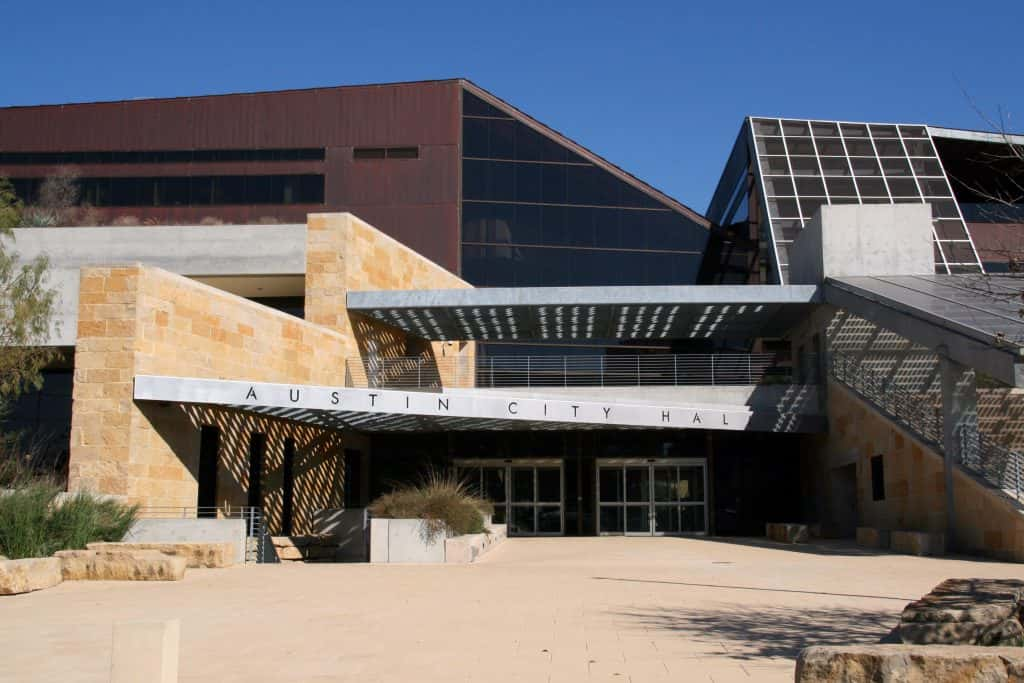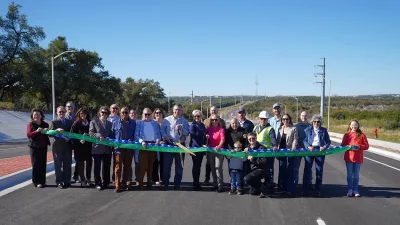The Austin City Council has adopted a $5 billion fiscal year 2022-2023.
Council’s adopted budget incorporates the Austin City Manager’s proposals from last month, while adding a number of investments and directions ranging across rental assistance, Fire/EMS stations, police cadets, and lifeguards for City pools.
“The budget adopted by Council today puts the City in a strong position to recruit and retain the people we need to sustain the high quality of services our residents have come to expect,” said City Manager Spencer Cronk. “It does this while reducing the City’s portion of the annual property tax bill for the typical homeowner and investing in public safety, disaster response, and actions to address climate change. We look forward to implementing Council’s priorities in the coming fiscal year.”
Budget Highlights
The largest portion of the General Fund budget – almost two thirds (62%) – is allocated to public safety. The remaining third funds a range of core services including court services, animal services, family health services, and management of libraries and parks.
To address the City’s rising vacancy rate, civilian staff will receive an across-the-board pay increase of 4% – the largest increase in more than two decades for librarians, rec center staff, utility line workers, waste collection and road repair crews, community health professionals and many more. The City’s living wage – the minimum payable to any employee – will rise by 33%, from $15 to $20 per hour, with a longer-term goal to go higher, per Council’s recent direction.
The budget dedicates new funds and positions – including in the Office of Homeland Security and Emergency Management – to promote resiliency and mitigate climate change, with investments in disaster-response infrastructure – such as cold weather shelters – community preparedness programs, and efforts to prevent wildfire and reduce community-wide greenhouse gas emissions.
Strategic Priorities
This is the fifth year in which the proposed budget was organized by outcome area, and not strictly by City department, to reflect the priorities of the Austin community, using Council’s adopted Strategic Direction 2023 as a guide. The outcomes are Culture & Lifelong Learning, Economic Opportunity & Affordability, Government That Works for All, Health & Environment, Mobility, and Safety.
Council began their deliberations on Wednesday working from the Manager’s proposed budget, (snapshot summary here) which included the following investments, now part of the adopted budget:
- $73 million in planned capital spending to build and repair city sidewalks.
- $3.4 million and 17 new jobs to improve disaster response and community preparedness.
- Increased City minimum wage and pay raises to address staffing shortages and sustain services.
- $27 million for cultural arts, historic preservation and live music, funded by Hotel Occupancy Taxes.
- $79 million for homelessness prevention, crisis response, housing stabilization, and public space management – including $4.8 million to clean up homeless encampments.
- 55 new jobs to improve customer service efforts at AUS airport.
- $79 million investment in affordable housing to meet goals set by the Austin Strategic Housing Blueprint.
- $1 million towards a Trauma Recovery Center to support victims of violent crime.
- $3.6 million for wildfire prevention and education.
- A $2.5 million investment in the Iconic Venue Fund, to help secure places of cultural significance.
- Funding for three Austin Police cadet classes to help fill officer vacancies and improve response times to emergency calls.
Council Amendments
After the Manager presented his proposed budget in July, stronger-than-expected sales tax revenues and other adjustments freed up an additional $20.3 million in one-time and ongoing funding. After two days of deliberations Council made the following amendments and directions:
- $7 million General Fund increase to raise the City’s minimum wage beyond the City Manager’s proposal of $18 per hour, to $20 per hour.
- $17.8 million in capital funding to complete construction of the Goodnight Ranch Fire/EMS station in southeast Austin.
- An additional $3 million in one-time funding, added to the $5 million proposed by the City Manager, to help prevent displacement and homelessness as rents rise.
- A further increase in the number of full-time lifeguards, from the four proposed by the City Manager to 13, to help address staff shortages and keep the City’s pools open and safe.
- $1.2 million to expand a life-saving program providing whole blood transfusions to patients before they reach the hospital.
- Option to run additional police academies customized for candidates with prior law enforcement experience.
- $350,000 to provide education and services focused on sexual and reproductive health and wellness, and contraception, following the Supreme Court’s Dobbs decision overturning Roe v Wade.
Impact on Taxpayers
The approved property tax rate of 46.27 cents per $100 of taxable value is 3.5% above the projected ‘no-new-revenue operations and maintenance tax rate’, which is the measure used by the state to determine compliance with its revenue cap.
The City tax bill for the typical homeowner – defined as the owner of a median-valued ($453,727) non-senior home – will be $1,679.52 per year or $139.96 per month. This represents a decrease of $50.64 per year or $4.22 per month. The annual bill for typical senior or disabled homeowners will be $1,104.12 – down $9.12 from last year.
At the same time, some of the City’s rates and fees, including for electricity, trash service, and the transportation user fee, will rise for typical rate payers in response to escalating operations costs, as well as increasing service demands from a growing population.
Taken together, the combined projected impact of tax, rate and fee changes represent an increase, for the typical ratepayer, of 3.8% – equivalent to an additional $169.68 per year or $14.14 per month.
Thursday’s approval of City tax and spending plans for the fiscal year beginning October 1, 2022 comes after several months of stakeholder engagement – including town halls, community budget input meetings, and a public survey.
The approved budget document will be published in the fall.





